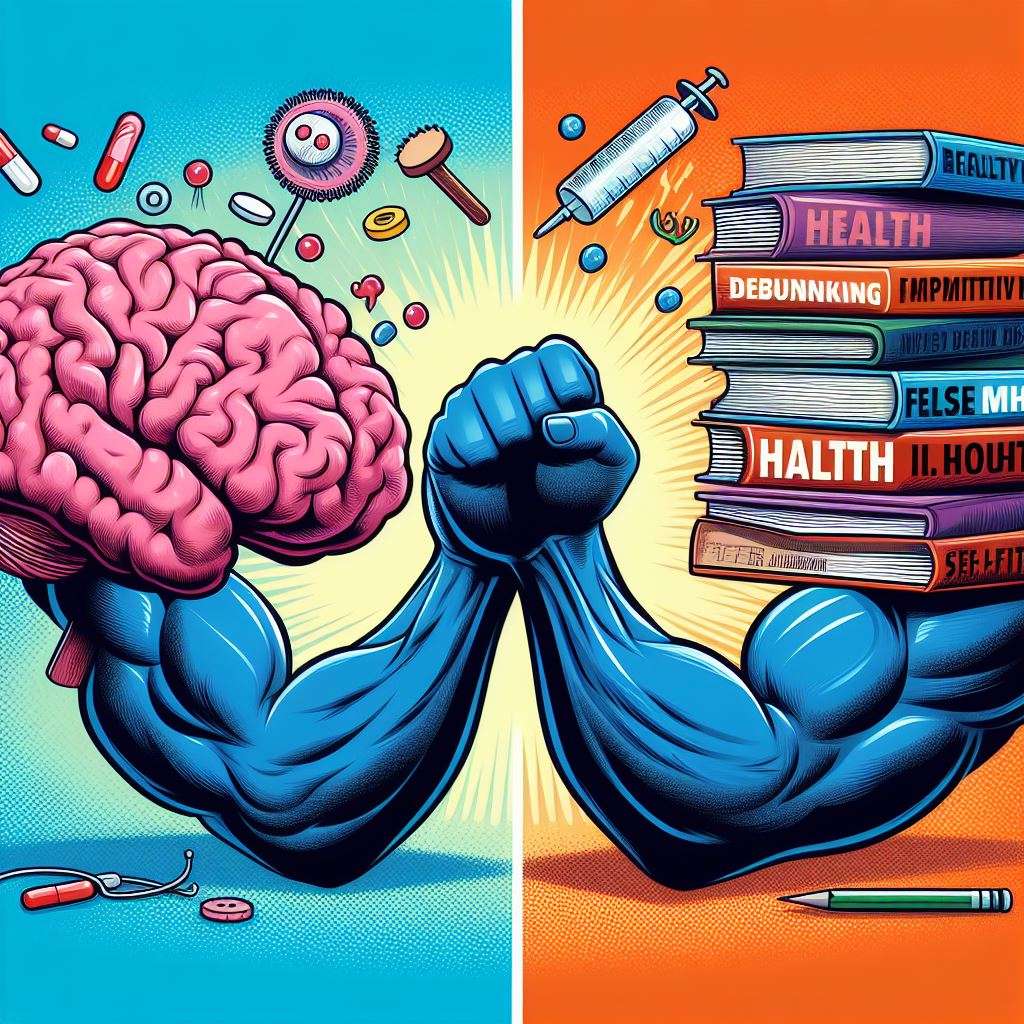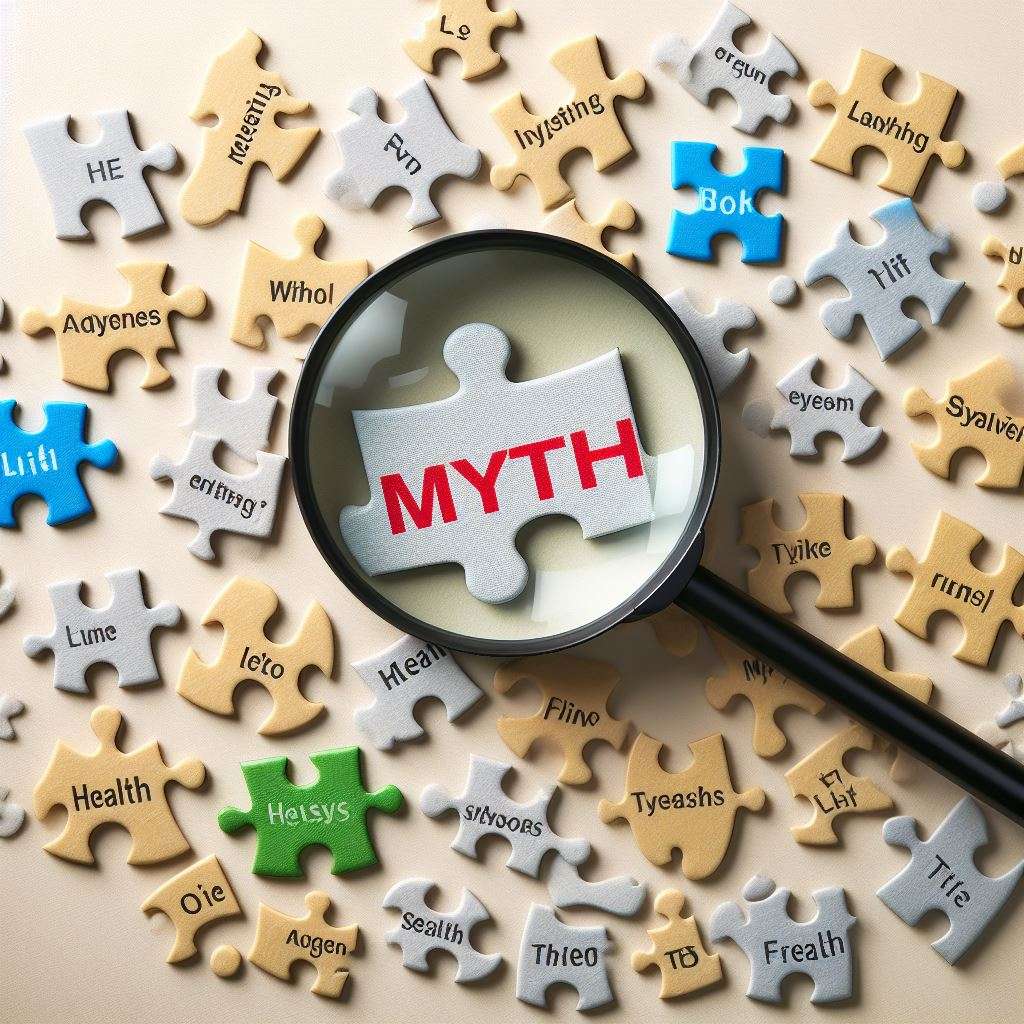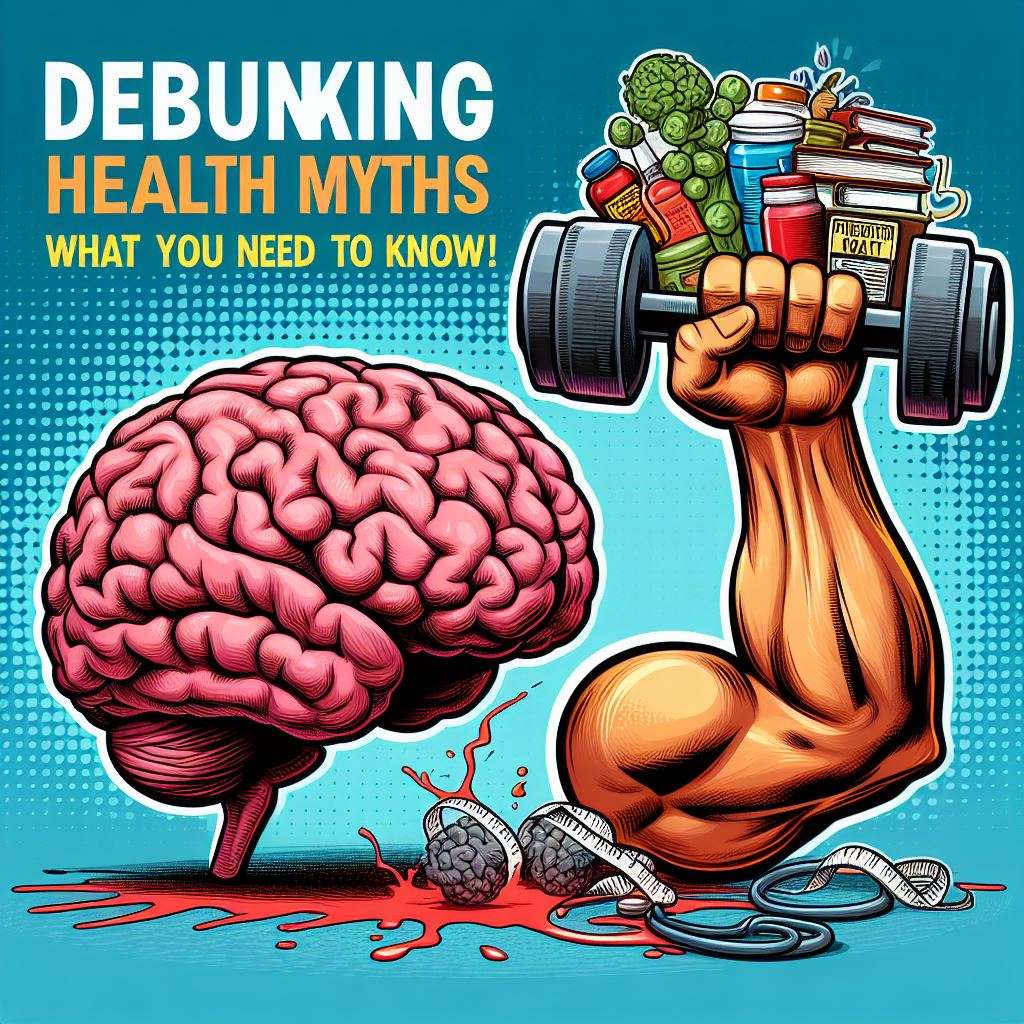Have you ever heard that carrots could improve your eyesight, or that you should drink eight glasses of water a day? If so, you are not alone. Many people believe in various health myths that are often passed down from generation to generation or spread through social media and other sources. However, these myths can be misleading, inaccurate, or even harmful to your health. In this article, we will debunk some of the most common health myths and provide you with factual information and evidence-based advice to help you make informed decisions about your well-being.
Popular Misconceptions & The Truth:
Here are some of the widely believed health myths and the truth behind them:
- Myth: Carrots can improve your eyesight.
- Truth: Carrots are rich in beta-carotene, a precursor of vitamin A, which is essential for eye health. However, eating carrots alone will not improve your vision or prevent eye diseases. In fact, consuming too much vitamin A can be toxic and cause liver damage, headaches, and skin problems. The best way to protect your eyesight is to eat a balanced diet, wear sunglasses, and get regular eye exams.
- Myth: You should drink eight glasses of water a day.
- Truth: There is no scientific evidence to support the claim that you need to drink a specific amount of water every day. The amount of water you need depends on various factors, such as your age, weight, activity level, climate, and health conditions. Moreover, you can get water from other sources, such as fruits, vegetables, juices, tea, and coffee. The best indicator of your hydration status is the color of your urine. If it is clear or pale yellow, you are well hydrated. If it is dark yellow or brown, you need to drink more fluids.
- Myth: You can catch a cold from being cold.
- Truth: Colds are caused by viruses, not by low temperatures. You can only catch a cold if you are exposed to an infected person or a contaminated surface. However, being cold can weaken your immune system and make you more susceptible to infections. Therefore, it is important to dress warmly, avoid stress, and get enough sleep and nutrition to boost your immunity.
- Myth: You can detox your body with juice cleanses or special diets.
- Truth: There is no scientific evidence to support the idea that you can flush out toxins from your body with juice cleanses or special diets. In fact, these methods can be harmful to your health, as they can deprive you of essential nutrients, cause dehydration, electrolyte imbalance, and digestive problems. Your body has natural mechanisms to eliminate waste and toxins, such as your liver, kidneys, lungs, and skin. The best way to support your body’s detoxification process is to eat a balanced diet, drink plenty of water, exercise regularly, and avoid smoking and alcohol .
- Myth: You can lose weight by skipping breakfast.
- Truth: Skipping breakfast can actually have the opposite effect on your weight. Studies have shown that people who skip breakfast tend to consume more calories later in the day, as they feel hungrier and crave for unhealthy snacks. Moreover, skipping breakfast can lower your metabolism, which means you burn fewer calories throughout the day. Breakfast is an important meal that provides you with energy and nutrients to start your day. The key to losing weight is to eat a healthy breakfast that includes protein, fiber, and complex carbohydrates, and to control your portion sizes and calorie intake for the rest of the day.
Avoiding Misinformation & Finding Reliable Sources:
As you can see, there are many health myths that can misguide you and affect your health. How can you avoid falling for these myths and find reliable sources of health information? Here are some tips to help you:
- Be skeptical and critical of any health claim that sounds too good to be true, or that contradicts established scientific knowledge. It’s important to seek out information from reliable sources and consult with healthcare professionals before making any decisions about your health. There are many false or misleading claims out there, so it’s crucial to approach any health information with a healthy dose of skepticism and critical thinking. Remember, if something sounds too good to be true, it probably is.
- Check the source and credibility of the information. Look for reputable institutions, such as government agencies, universities, or professional associations, that provide evidence-based and unbiased information. Avoid sources that are sponsored by commercial interests, such as product manufacturers or sellers, or that have a hidden agenda, such as promoting a certain ideology or belief.
- Look for peer-reviewed studies that have been published in reputable journals, and that have been replicated and confirmed by other researchers. Avoid studies that have a small sample size, a short duration, or a lack of control group, as they may not be valid or generalizable.
- Seek professional guidance from qualified health experts, such as doctors, nurses, dietitians, or pharmacists, who can provide you with personalized and accurate advice based on your health condition and needs.
Empowering Yourself with Knowledge:
Debunking health myths is not only important for your health, but also for your empowerment. By learning the truth and finding reliable sources of health information, you can:

- Take responsibility for your health and well-being and make informed choices that suit your goals and preferences. It’s important to stay educated about different options for maintaining a healthy lifestyle, whether it’s through exercise, nutrition, or seeking professional medical advice. By being proactive and mindful of our choices, we can empower ourselves to lead a fulfilling and balanced life. Remember, your health is your greatest asset, so take the time to invest in it wisely.
- Avoid wasting your time, money, and energy on ineffective or harmful products or practices that claim to improve your health. Instead, focus on evidence-based approaches and consult with trusted healthcare professionals to make informed decisions about your well-being. By staying informed and seeking credible sources, you can empower yourself to prioritize your health effectively. Remember, your well-being is worth the investment of time and effort in understanding what truly works.
- Protect yourself and others from potential harm or fraud that may result from following health myths or misinformation. It’s important to always fact-check information and consult reliable sources such as healthcare professionals or reputable organizations. By staying informed and educated, you can avoid falling victim to false claims and protect your health and well-being. Remember to question information that seems too good to be true and always seek guidance from trusted sources.
- Enhance your critical thinking and problem-solving skills and become a more rational and confident person. By learning to analyze situations from different perspectives, you can make more informed decisions and effectively navigate through challenges. Developing your critical thinking and problem-solving abilities will not only benefit your personal and professional life but also contribute to your overall growth and success. So, take the initiative to sharpen these skills and unlock your full potential.

Conclusion:
Health myths are common and widespread, but they can be easily debunked with factual information and evidence-based advice. In this article, we have debunked some of the most popular health myths and provided you with tips to avoid misinformation and find reliable sources of health information. We hope that this article has helped you to learn something new and useful, and to empower yourself with knowledge. If you enjoyed this article, please share it with your friends and family, and explore further resources on health information. Remember, knowledge is power, and you have the power to improve your health and well-being.
